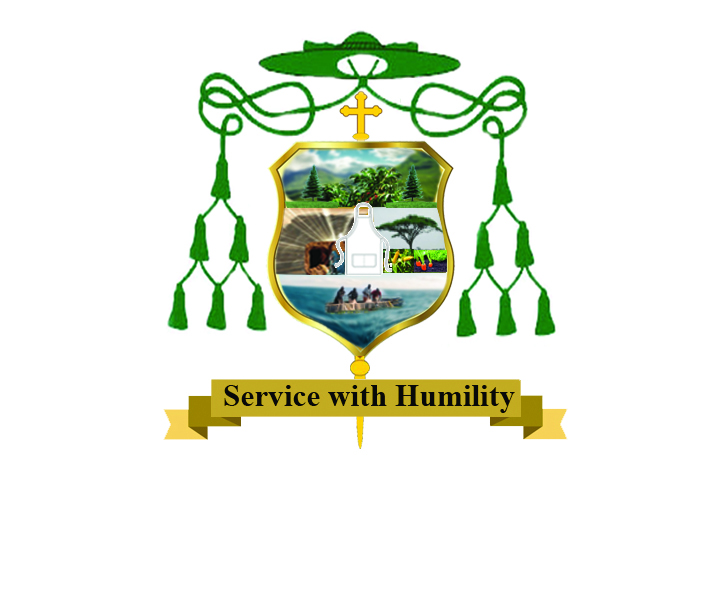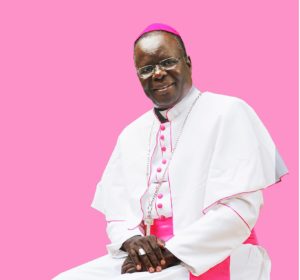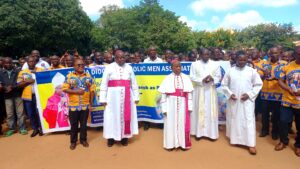UGANDA: “Central Symbol of My Coat of Arms is the Apron,” Says Bishop-Elect of Nebbi Diocese

Sr. Jecinter Antoinette Okoth, FSSA
Bishop-elect Monsignor Raphael p’Mony Wokorach who was appointed by Pope Francis in the month of March as the Local Ordinary of Uganda’s Nebbi Diocese, has explained to AMECEA Online the meaning of his Coat of Arms emphasizing the symbol of the “Apron” as significant and indicative of his desired humble service to the people.
“The central symbol of my Coat of Arms is the apron,” Msgr. Wokorach said in an interview Thursday, June 17, and narrated, “I believe all ministries of the Church as prescribed in various Church documents are done on the altar of service.”
According to Msgr. Wokorach a member of the Comboni Missionaries of the Heart of Jesus (MCCJ) whose episcopal ordination is slated for Saturday, June 26 in Nebbi, Northern Uganda, “An apron is an instrument of service that is always within reach for whoever is offering services to the society.”
The Bishop-elect said, “I got inspired through the experience of an Italian Bishop Antonio Bello (Don Tonino) who died about 25 years ago and whose theology is that Jesus never removed his apron after washing the disciples’ feet. To him (Bishop Bello) Jesus’ ministry is always of service and this is what I ask to emulate with God’s grace.”
Basing his reflection on Bishop Bello’s theology, Msgr. Wokorach crafted his motto “Service with Humility” and emphasized that “In our ministries there should always be some disposition and humble attitude that accompany our services.”
“Serving with humility calls for bringing out greatness in others,” the Bishop-elect said and continued, “As people tend to seek greatness in so many ways including power and wealth, Jesus’ principle seems to be simpler than all we can think of; to be like a little child, hence we can become great if we strive to bring out the greatness in others.”

Besides the symbol of an apron, the Comboni Missionary explains the empty tomb in his Coat of Arms which acts as a reminder that “death is not the last word in the Bible but that Jesus fought and won the battle.” Thus, when Jesus opened the door of the tomb he removed the stone of fear and other obstacles in our heart for the new life that God has given us in Jesus Christ.”
“After his resurrection and leaving the tomb opened, Jesus worked in Galilee and interacted with all sorts of people; the drunkards, the prostitutes, the sick, the disable and many others” Msgr. Wokorach expounded more about the empty tomb and continued, “I pray for his graces that I too may embrace the people I am to serve in Nebbi and never close the tomb with human indifferences, hatred, jealousy and other vices.”
Other symbols include the water body, the boat, hills and vegetation which “depicts the geographical panorama of Nebbi Diocese,” he explained adding that “lake and boat symbolizes the Church.
Evangelization in the region began when the first missionaries arrived in Nebbi area even though it’s the youngest diocese, then the Word of God spread to other areas.”
Before his appointment the Bishop-elect has been the Pontifical Commissary for the congregation of the Apostles of Jesus since 2018.


